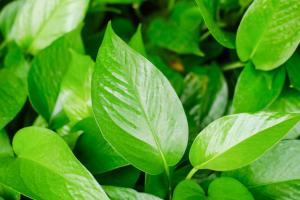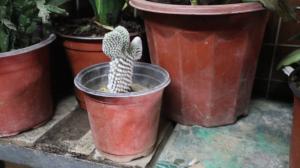Should You Not Plant Anything Under Black Walnut Trees
Black walnut trees are a popular addition to gardens and landscapes for their beauty and shade. However, they also have a reputation for being allelopathic, which means they release chemicals into the soil that can inhibit the growth of other plants. As a result, many gardeners wonder whether they should avoid planting anything under black walnut trees. Here's what you need to know.
What Are the Effects of Black Walnut Trees on Other Plants?
Black walnut trees release a toxic compound called juglone, which inhibits the growth of many plants. The compound is present in all parts of the tree, but it's most concentrated in the roots, nut husks, and leaves. When these plant parts decay and release juglone into the soil, nearby plants can suffer from stunted growth, yellowing leaves, and even death.
What Should You Avoid Planting Under Black Walnut Trees?
If you have a black walnut tree in your garden or landscape, it's best to avoid planting plants that are susceptible to juglone. These include most fruit trees, vegetables like tomatoes and peppers, and many ornamental plants like azaleas, rhododendrons, and hydrangeas. Instead, opt for plants that are more tolerant of juglone, such as ferns, hostas, and many types of grasses.
Are There Any Exceptions?
While most plants are susceptible to juglone, there are a few exceptions. For example, some types of vegetables like onions, garlic, and beans are more tolerant of juglone and can be planted under black walnut trees. Additionally, some varieties of fruit trees like apple and pear trees can be grown under black walnut trees if they are grafted onto a rootstock that is tolerant of juglone.
How Can You Minimize the Impact of Juglone?
If you want to plant something under your black walnut tree, there are a few things you can do to minimize the impact of juglone. First, try planting in raised beds or containers that are filled with fresh soil rather than planting directly in the ground. This will provide a buffer between the plant roots and the soil that contains juglone. Additionally, you can try removing any fallen leaves, nut husks, or roots from the area to reduce the amount of juglone in the soil.
Conclusion
If you have a black walnut tree in your garden or landscape, it's important to be aware of its allelopathic effects on other plants. While it's best to avoid planting susceptible plants under black walnut trees, there are still many options for creating a beautiful and diverse garden. By choosing plants that are more tolerant of juglone and taking steps to minimize its impact, you can enjoy the shade and beauty of your black walnut tree without sacrificing your garden's health and vitality.

 how many times do yo...
how many times do yo... how many planted tre...
how many planted tre... how many pine trees ...
how many pine trees ... how many pecan trees...
how many pecan trees... how many plants comp...
how many plants comp... how many plants can ...
how many plants can ... how many plants and ...
how many plants and ... how many pepper plan...
how many pepper plan...































